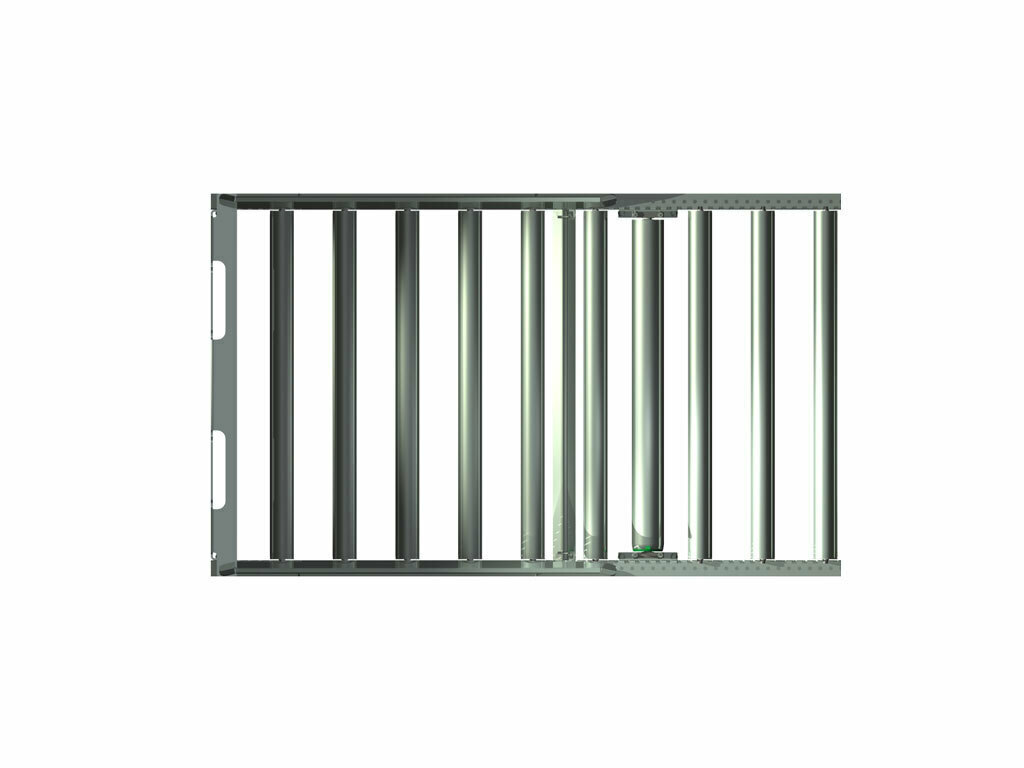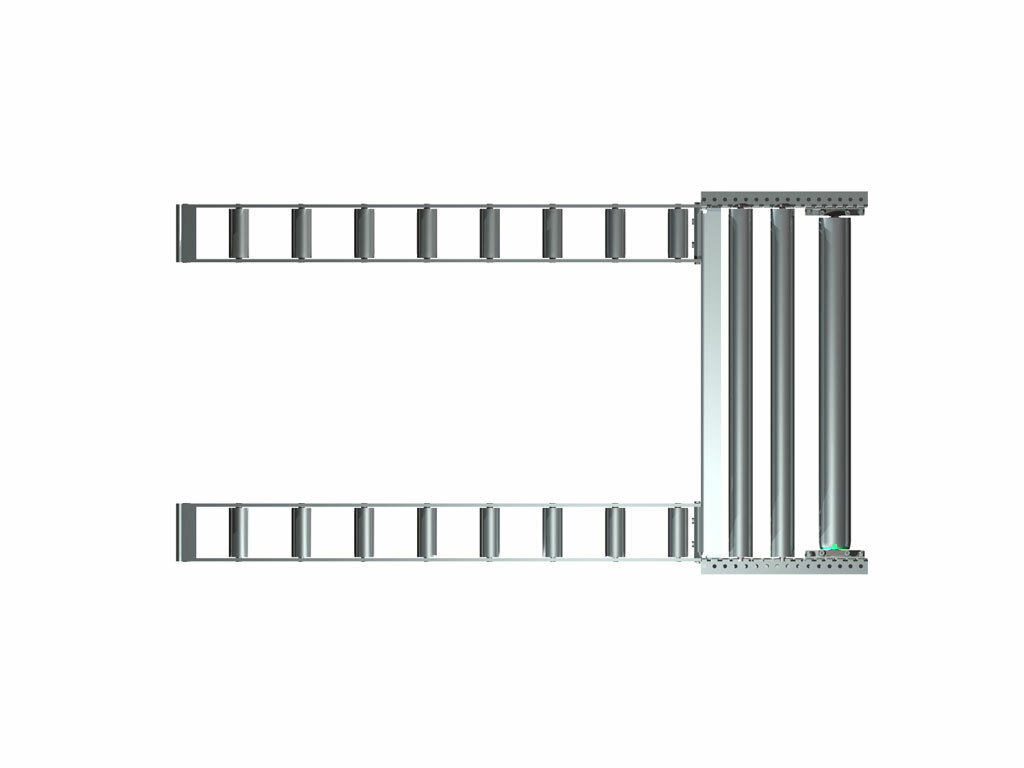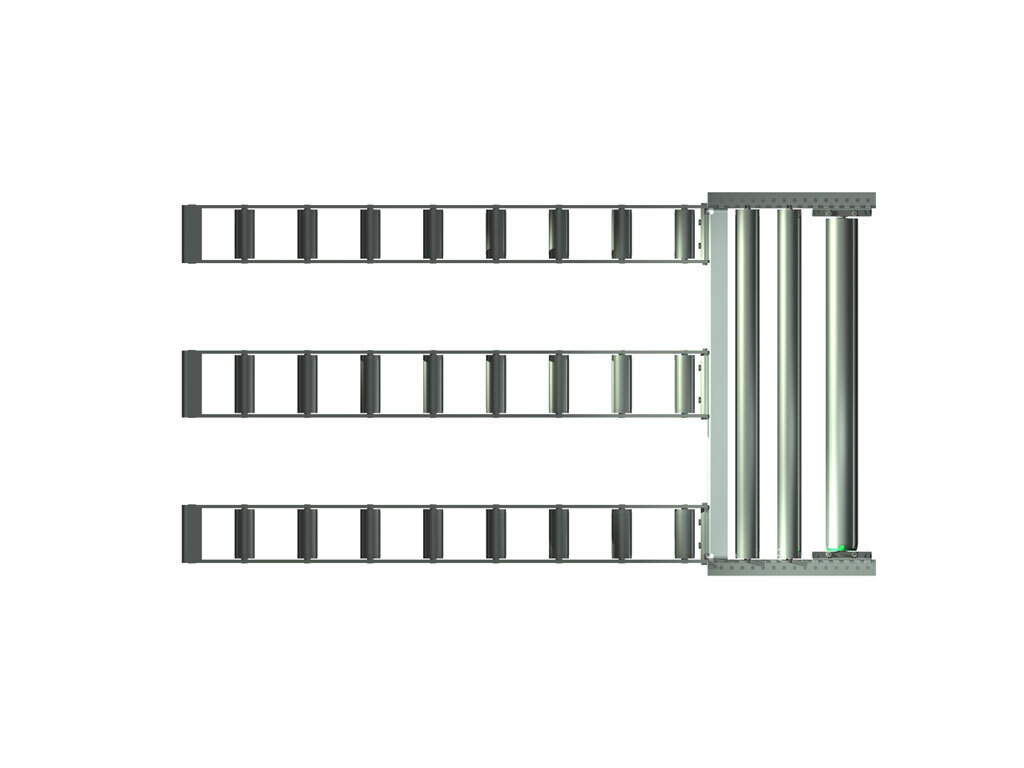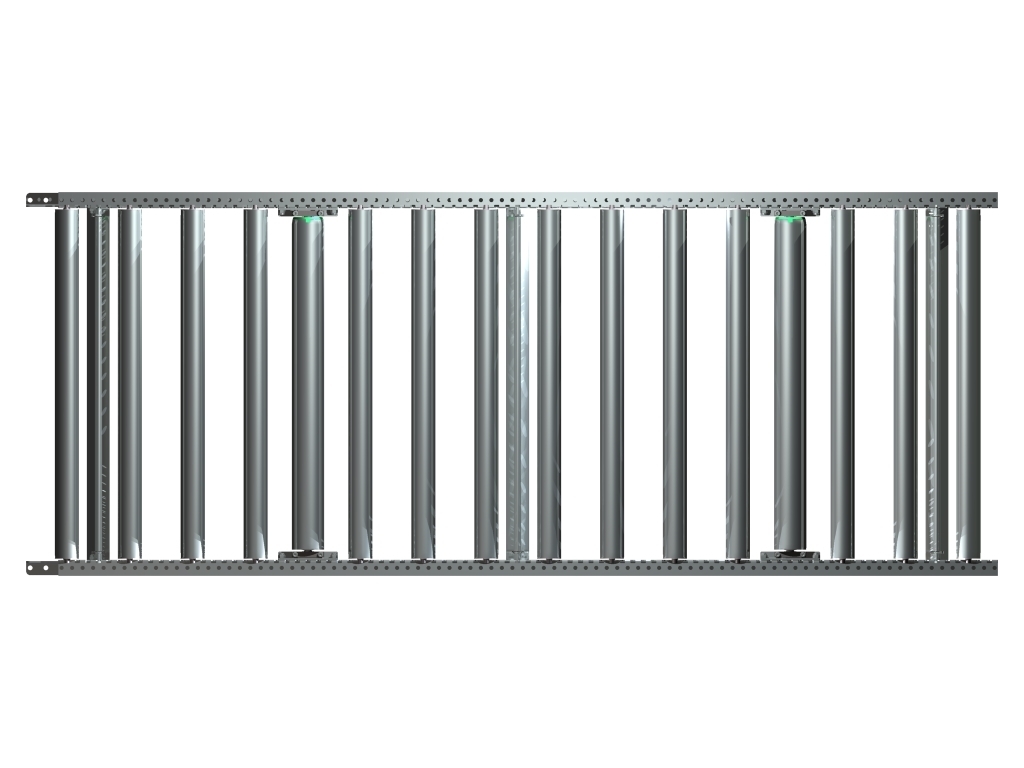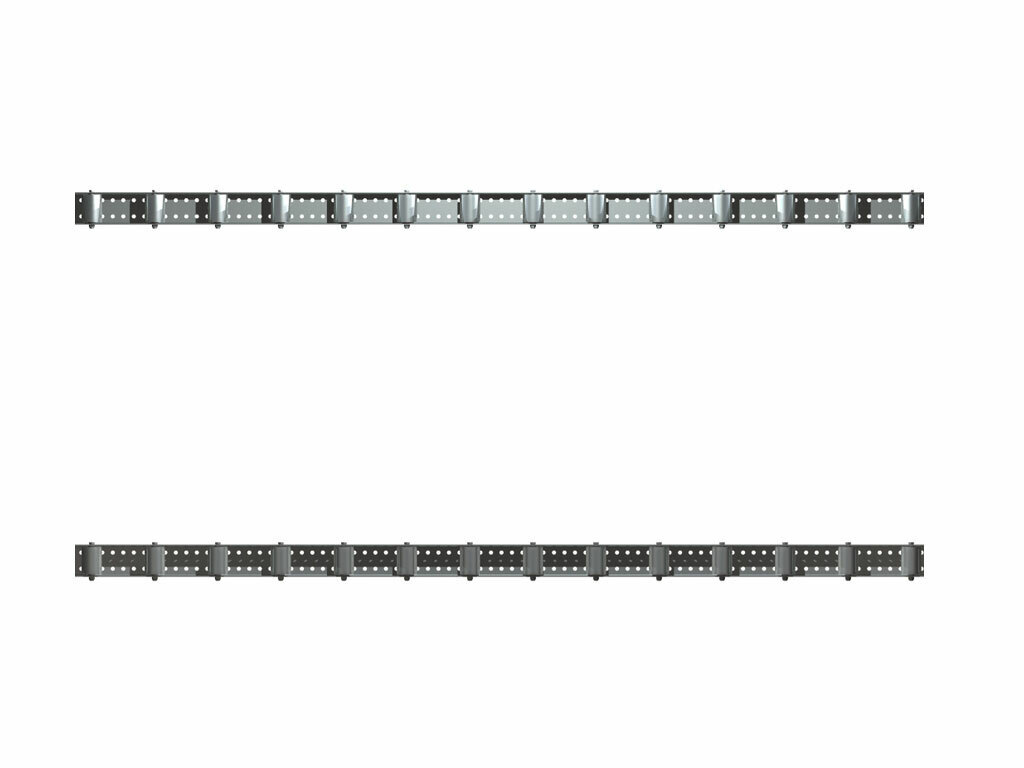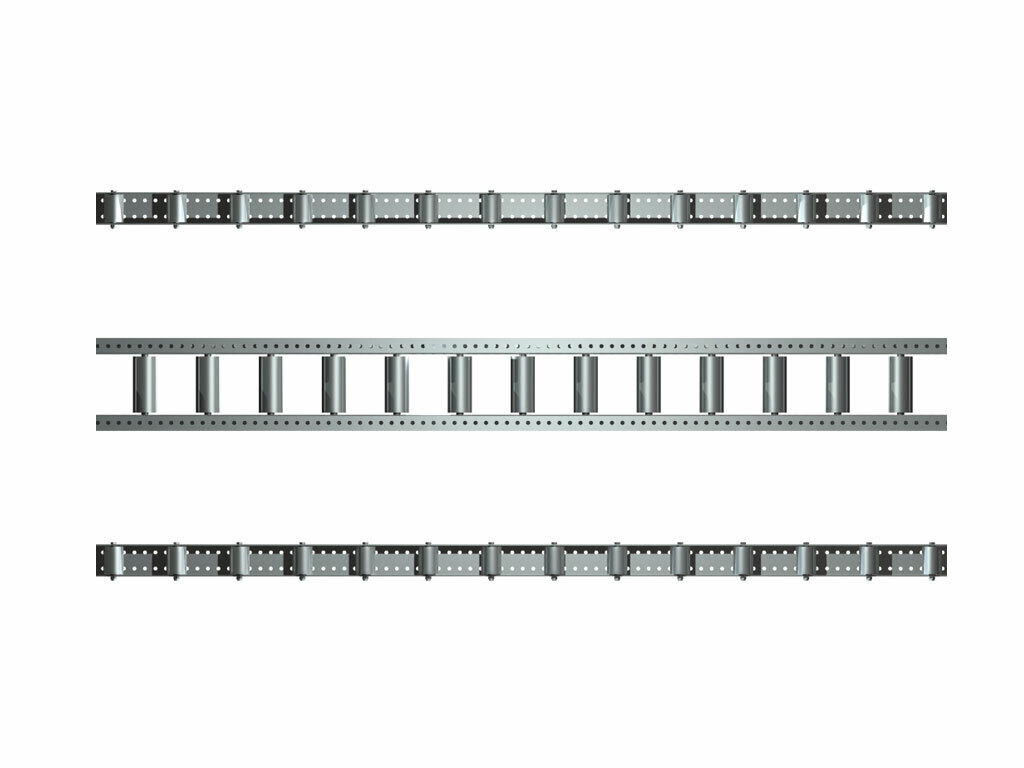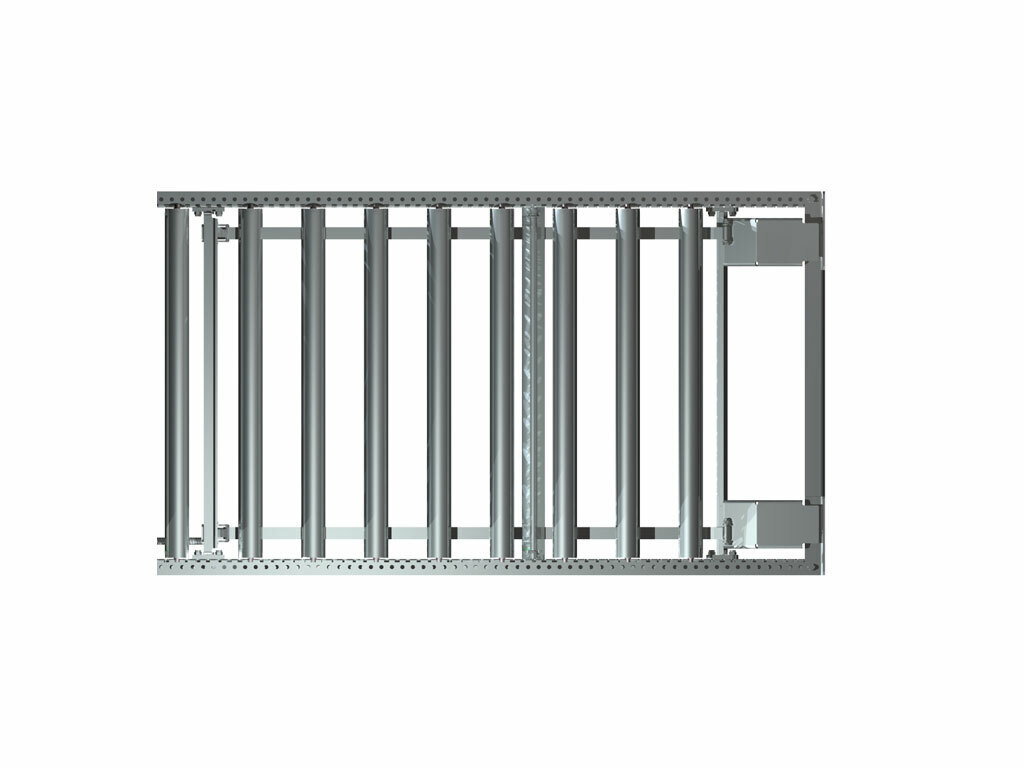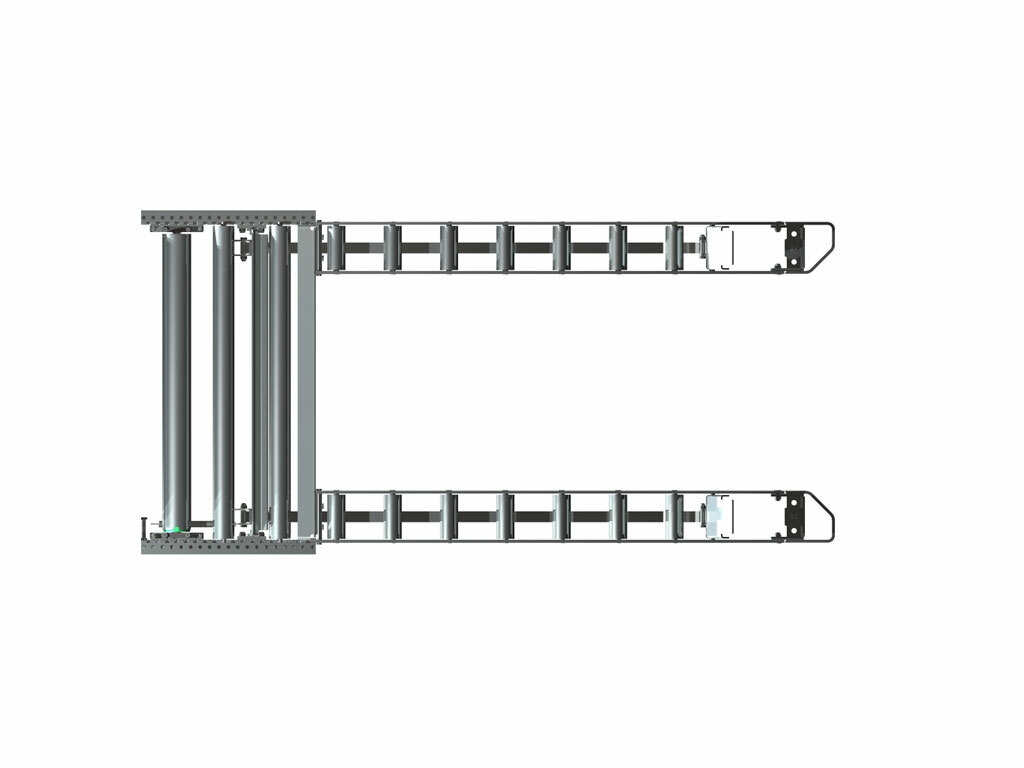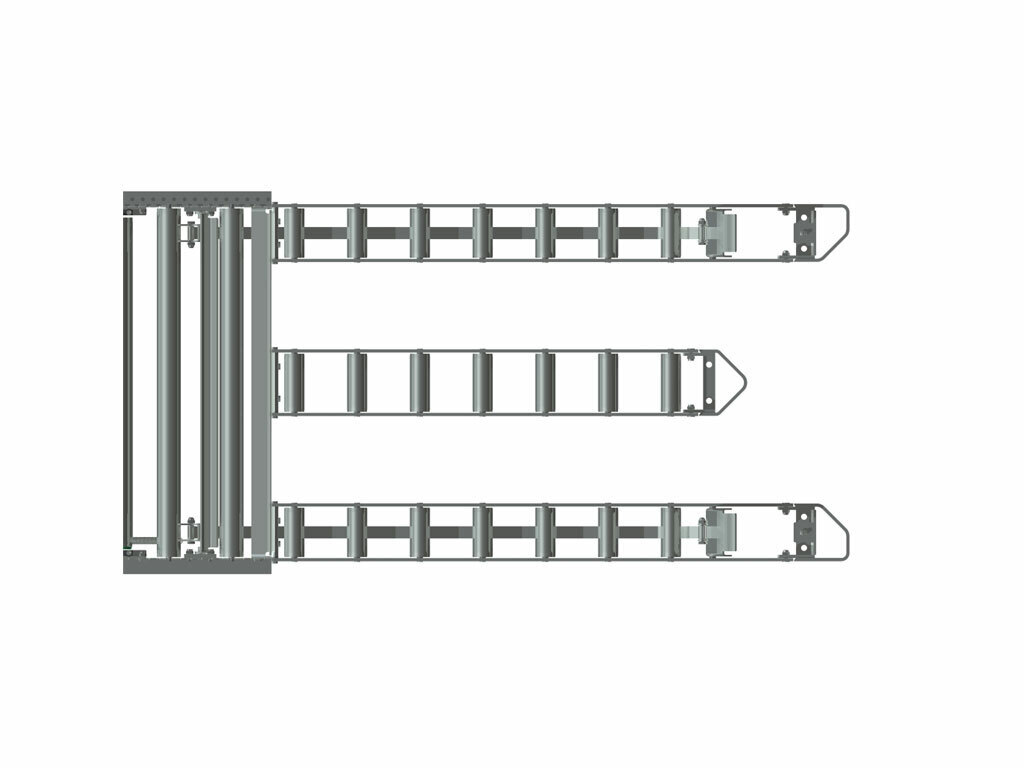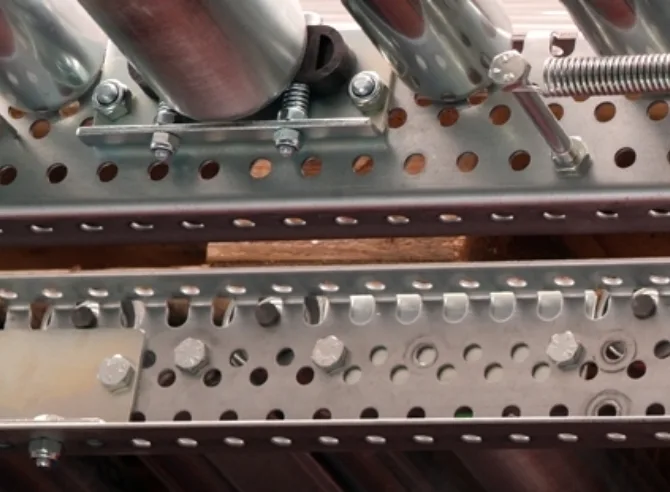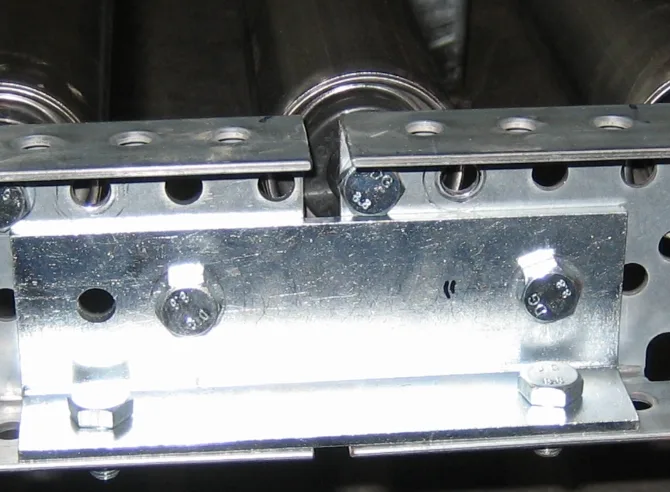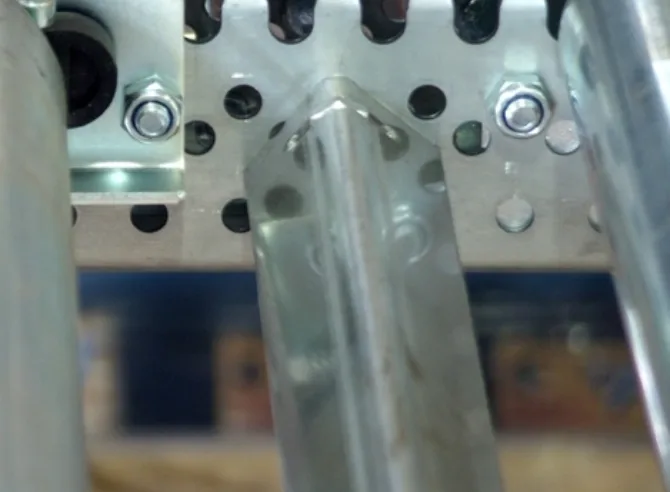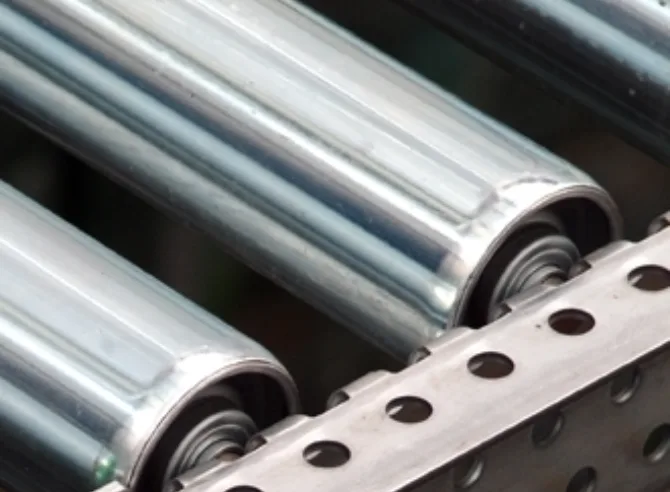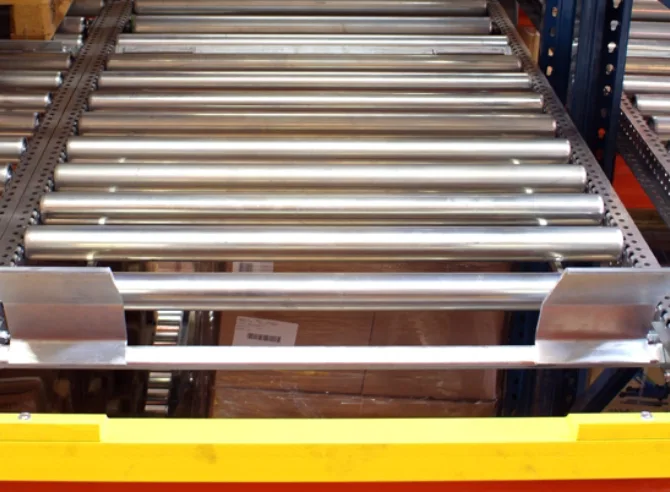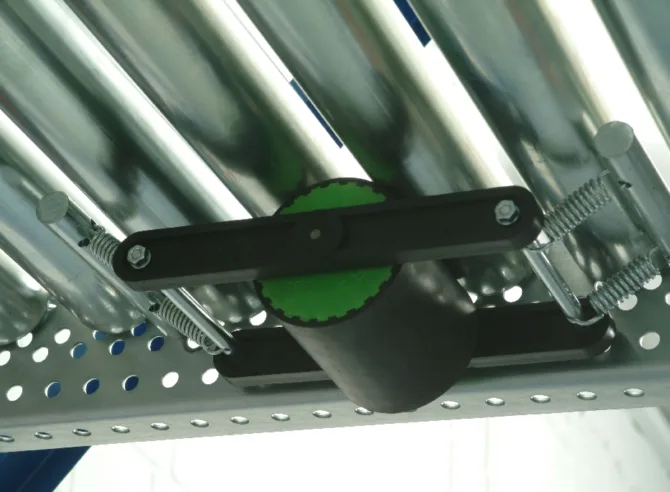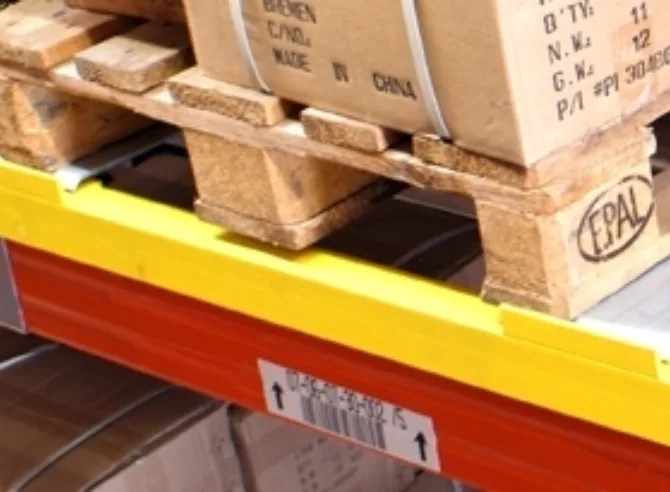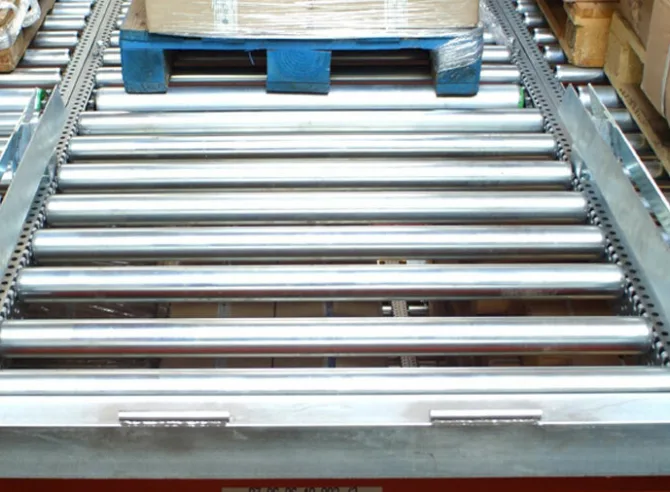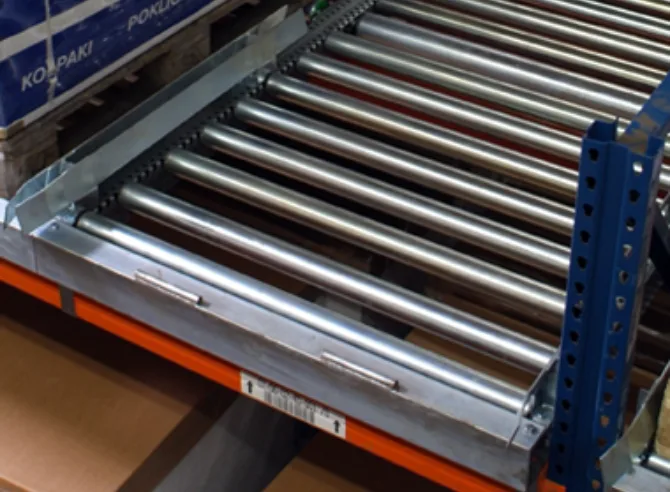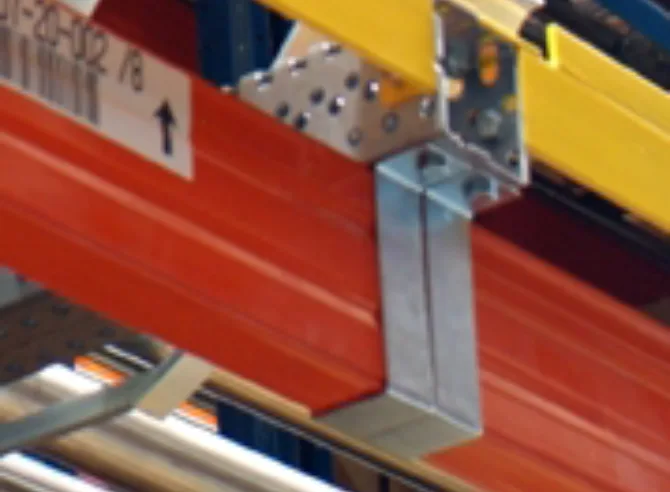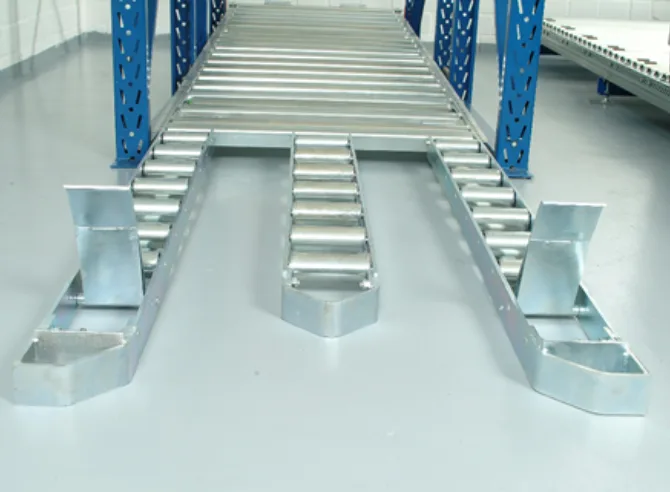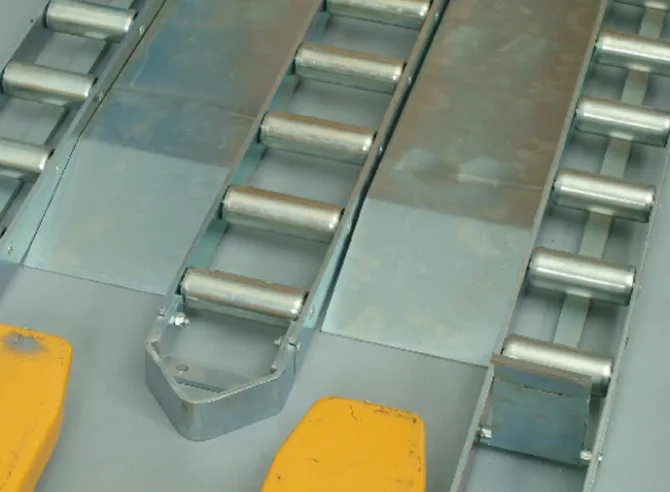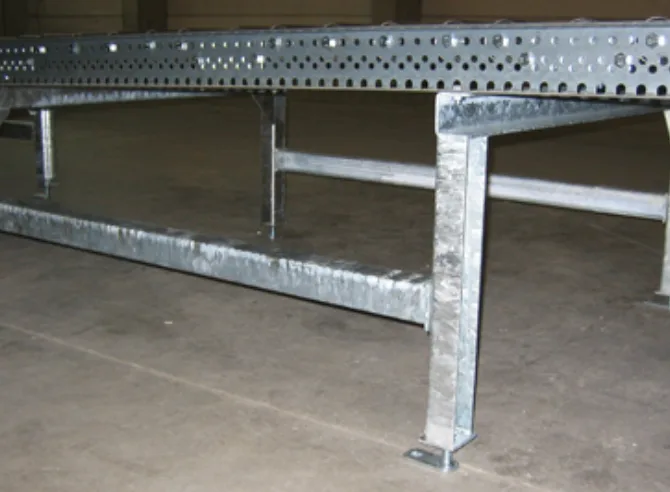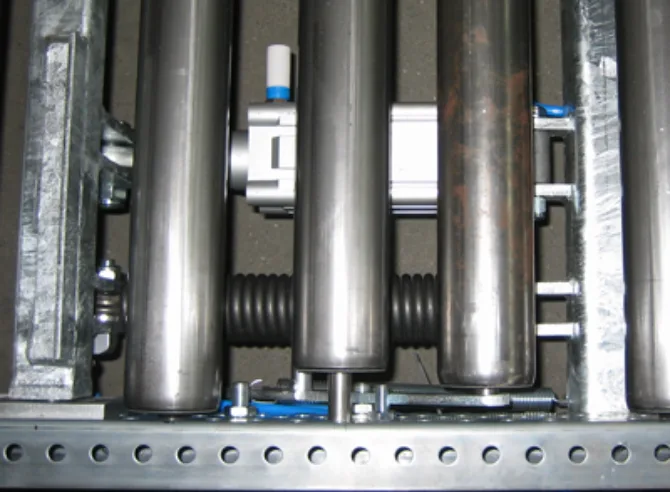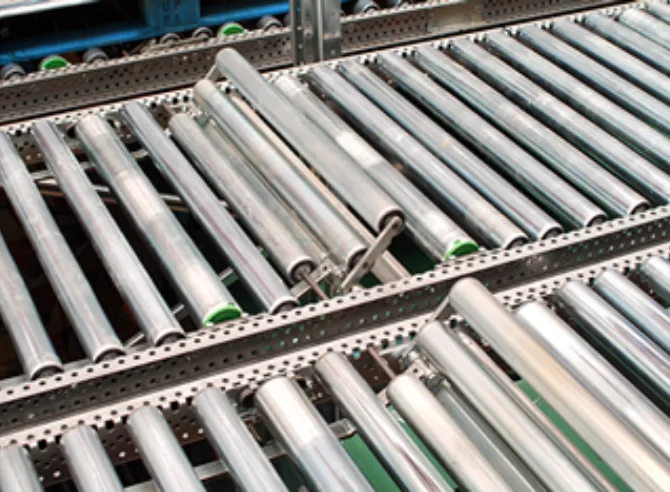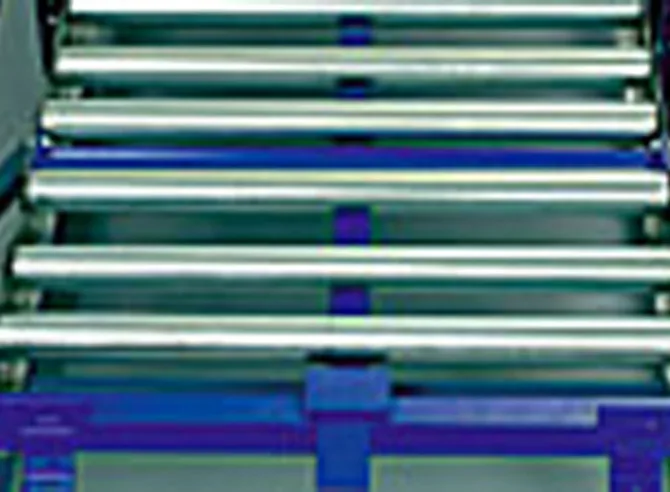Roller Conveyors - Planning
Foresighted planning is an important part of any building project. In order to benefit from the many advantages of Rollex roller conveyors, it is important to check a number of conditions and influencing factors in advance. Your Rollex team will be happy to assist you as a competent partner right from the start.
Roller conveyor suitability of the loading devices
This refers to the running behavior of pallets or other loading devices on roller conveyors. We will help you to determine the suitability of your conveyed goods for roller conveyors - if in doubt, a test run will help you to find the right solution.
Rough everyday life
If, for example, there are only a few minutes available for loading trucks, it can happen that industrial trucks run into components on the conveyor. The components should be able to withstand this. Make sure they are robustly constructed to ensure full functionality and safety in the long term and use surface-treated components to suit the intended use.
Dimensioning and equipment
A key characteristic of continuous roller conveyors is that gravity alone is sufficient to transport the goods to the removal point. The goods should move independently, slowly and safely to the removal side. Seek advice regarding the type and quantity of support and brake rollers as well as their arrangement and track incline.
Standard Modules
In order to meet your individual requirements, Rollex has a modular system of combinable infeed, middle and outfeed modules for roller conveyors in its range.
Depending on the application, the optimum technical and economical solution can be supplied. The roller conveyors can be combined according to your requirements.
Area of responsibility
Accumulation Area
Extract Area
Do you need a customized solution for your application?
Do you need a customized solution for your application?
If our standard modules do not meet your requirements, we will be happy to make you a customized proposal. We look forward to hearing from you: please use our inquiry form.
Equipment
Profile 750
Sendzimir galvanized perforated profiles can be used for inlaid or bolted idlers. In the latter case, the profile is simply turned over. Bolted rollers are used, for example, if the required center distance makes the use of brake rollers impossible or if there are particularly high stability requirements.
Connector
Rollex roller conveyors are supplied in pre-assembled modules to minimize transport costs, for example. The connectors can be used to create any length of track.
Spacer
Spacers are only required if the support rollers are inserted (not screwed). They are used to fix and maintain the distance between the profiles (type 750).
Idlers
Galvanized (STI) or bright steel (ST) tube is used as standard for the roller material. The axle design is usually either "A12 smooth" for inserted rollers or "A 14 IGM 10" in the case of bolted axles. In addition to the standard dimensions (clamping length 872, 1072 and 1272), special lengths can also be supplied.
Separating device
Separating devices reduce the accumulation pressure of the two foremost conveyed goods and thus ensure controlled removal of the foremost pallet. In the case of long flow channels, an additional pallet separator is installed for pallets weighing 1,000 kg to reduce the accumulating forces.
Brake [carrier] Rollers
The right combination of conveyor weight, support or rolling surface, material used, gradient and braking is crucial for a functioning gravity roller conveyor. Rollex offers direct and indirect acting braking elements for optimum, continuous braking. Brake rollers or brake support rollers regulate the speed of the conveyed goods on the gravity roller conveyor. They keep the conveyed goods at a constant discharge speed. The advantage of the Rollex brake idler lies in its spring suspension. This suspension presses the brake support roller permanently against the conveyed goods and also adapts to uneven surfaces of the conveyed goods within a tolerance range. The distance between the brake rollers and the correct brake roller type are influenced by several factors: design, functional performance and inclination of the roller conveyor, behavior of the transported goods (size, weight, sensitivity, skid material), inherent resistance of the brake roller, environmental influences such as moisture, cold or heat.
At least one brake roller is required per pallet position, as this is the only way to achieve a controlled speed.
Indirect braking is preferable in many cases, as contact with the pallet is transmitted via two idlers. Four springs ensure this contact. To improve the contact between the brake roller, idler roller and pallet, a self-adhesive friction lining can be applied to the idler roller in the area of the brake roller.
End stop
The usually galvanized or powder-coated end stop profile serves as an end stop for the conveyed goods at the end of the roller conveyor. Depending on the pallet type, the stop surface can also be made wider.
Accessories
Import centering
Depending on the conveyed goods, operating device and track length, the infeed area is equipped with a centering unit. The infeed centering unit (EFZ) is used to position the conveyed goods in the middle of the web and align them.
Roller Protection Profile
The roller protection profile (RSP) is used to protect the rollers from impacts, e.g. with the forklift forks, in rough everyday use. This solid component protects the castors in the pallet loading area.
Fastening straps
In order to be able to screw the roller tracks onto different beam profiles of the shelving manufacturers, we have various fastening brackets (e.g. for beams or double T-profiles). The first and last support beams are often designed as angles to additionally secure the tracks horizontally.
Impact protection
Depending on the removal device, an end stop with simultaneous impact protection function can be used instead of a simple pallet end stop, e.g. when using a pallet truck.
Access ramp
Depending on the operating device, the use of access ramps is recommended to reduce the lifting distance.
Substructure
Roller conveyors are often used without a shelf on the floor. For such applications, Rollex offers sturdy welded support structures with adjustable supports to compensate for unevenness in the floor (approx. +/-20 mm).
Special construction
Separating device
Pneumatic separator
In some cases, pneumatic components can be used to separate the conveyed goods. For example, if the following pallets are to follow with a time delay or with an additional switch, or if, for example, two Düsseldorf pallets are to be removed at the same time.
Dynamic pressure reducer
Web-centered separators to reduce dynamic pressure in long channels
Additional separators are used at defined intervals to reduce the dynamic pressure, especially in long channels and heavy pallets. This reduces the pressure on the locking shaft at the removal point.
Separating rocker
Removal element with separating rocker
For low conveying weights (up to approx. 300 kg) and no more than 3 places per channel, the use of a separating rocker can be the most cost-effective alternative.
